Pre-#EIE14 Experience: Blended D.C. Policy Hackathon
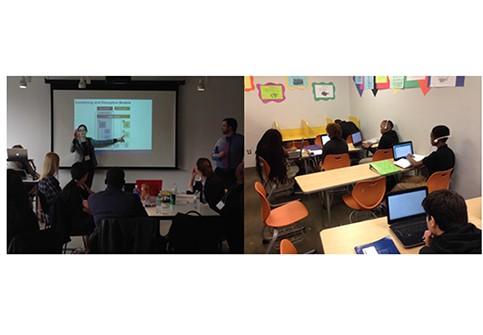
Blended, personalized and competency-based learning holds promise for boosting achievement in high challenge cities like Washington, D.C.–that was the conclusion reached by a group of policy makers that toured schools in the nation’s capital yesterday. Digital Learning Now, an initiative of the Foundation for Excellence in Education, hosted school visits and a discussion of policy implications prior to the opening of the National Summit on Education Reform (#EIE14) to engage policymakers in an immersive education innovation experience.
D.C. Blends: John Rice leads blended learning efforts for D.C. Public Schools. His first step was surveying teachers to find out what tools and content they were using. They vetted hundreds of resources and selected three options for math. They have had “phenomenal results with ST Math” and appreciate the ability to sequence and align it to core instruction. Schools also use adaptive i-Ready and First in Math to boost fluency.
Rice has four criteria for quality blends: high quality content, small group instruction driven by data, active student engagement and purposeful use of technology.
.@NCJoelRose on ed innovation: “We are more limited by our own imagination. Policies aren’t always the limiting factor we think.” #EIE14
— Digital Learning Now (@DigLearningNow) November 19, 2014
Policymakers from 15 states saw two examples that embody this framework. The first was Hart Middle School, in the Ballou High School feeder pattern (one of two blended feeder patterns in development). Hart features Teach to One from New Classrooms, an R&D project aiming to redefine math education. Exit tickets drive a recommendation engine which develops a suggested schedule for every student every day that is customized to individual academic goals. Students rotate through eight different stations. Hart is one of 15 schools nationally with the groundbreaking personalized math program.
The second visit was Ketcham Elementary, a feeder to Kramer Middle School (the first blend in D.C.). The station rotation model is supported by teachers that include CityBridge Innovation Fellows and CityYear members. There are 10 whole school blended learning models in D.C.. Instructional coaches have helped all schools progress in their digital conversion.
Policy Hackathon: After a morning of school visits that helped policymakers envision what is possible, the participants congregated at the General Assembly office and 1776 tech incubator in downtown D.C. to discuss policy levers and potential barriers that may enable or inhibit these models in their states. Hosting this session with the innovative backdrop of General Assembly sparked robust discussions about the role policy plays in new school models. State policymakers debriefed on school visits and shared reflections on practices, cultures, teaching and learning that took place in the schools they visited.
Presenters from ExcelinEd, Clayton Christensen Institute and Getting Smart shared definitions and resources around a few main concepts that play a significant role in digital learning including:
- Blended learning – see the Blended Learning Implementation Guide
- Competency-based learning – see The Shift from Cohorts to Competency
- Personalized learning – see iNACOL’s Mean What You Say: Defining and Integrating Personalized, Blended and Competency Education
- Course Access – see Leading in an Era of Change: Making the Most of State Course Access Programs
Site Visit Impressions: Innovative schools personalize learning by re-thinking technology, time, space and staffing. These models leverage technology, but the real innovation lies in how educators design personalized learning experiences for students. Participants were impressed by the diverse arrangements of student-teacher interactions–some with technology and some without. Visits confirmed the importance of talent development and the leadership support necessary to create a culture where innovations in teaching and learning can thrive. Participants were also surprised by the different ways that blended learning can manifest in schools under different models. A key point made later in the day focused on the evolution of learning models captured by this graphic from Andy Calkins, Deputy Director for Next Generation Learning Challenges (NGLC).
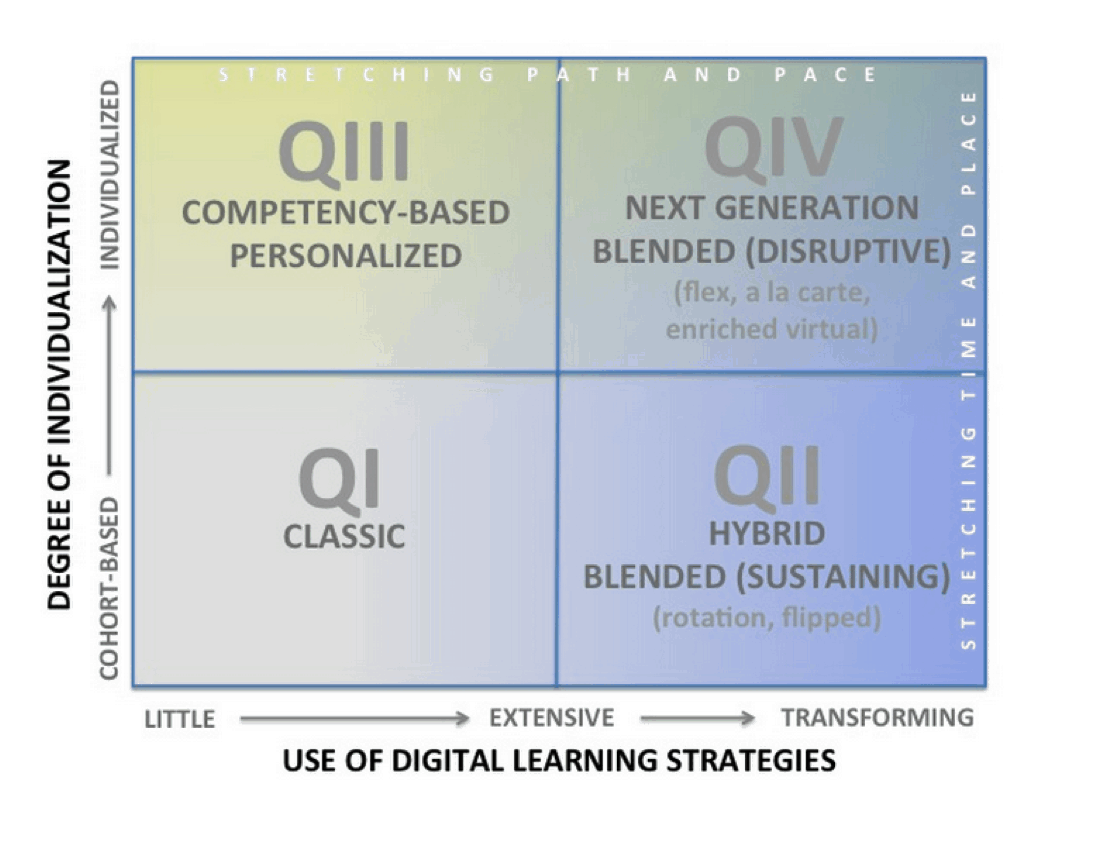 Policy Options: Following the discussion, policymakers worked in teams to determine policies and incentives that would result in a significant increase in personalized, digital learning environments. Through presentations, participants shared resources, knowledge and best practices for developing and implementing policies in their states that will increase access for ALL students to these innovative school models. The groups discussed what investments and other policy/regulatory changes would be needed to promote innovation in their own school systems. Groups proposed ways to overcome barriers such as access to broadband, and the need for improved guidance systems. All agreed there is a great need to engage with executive, legislative, regulatory, education and other stakeholders to build support for these changes and to expand pockets of innovation across their states.
Policy Options: Following the discussion, policymakers worked in teams to determine policies and incentives that would result in a significant increase in personalized, digital learning environments. Through presentations, participants shared resources, knowledge and best practices for developing and implementing policies in their states that will increase access for ALL students to these innovative school models. The groups discussed what investments and other policy/regulatory changes would be needed to promote innovation in their own school systems. Groups proposed ways to overcome barriers such as access to broadband, and the need for improved guidance systems. All agreed there is a great need to engage with executive, legislative, regulatory, education and other stakeholders to build support for these changes and to expand pockets of innovation across their states.
Great presentations from workshop teams on 3 year plans for improving access to digital learning #EIE14 pic.twitter.com/1TYrnsYlqY
— Digital Learning Now (@DigLearningNow) November 19, 2014
Every state and school district is at a different place in their readiness to implement these new models, and they won’t scale rapidly on their own without targeted efforts from a range of policymakers and stakeholders. We are looking forward to more discussions on unlocking student achievement at this year’s #EIE14. If you can’t make the Summit in person catch the live-streaming webcast and learn more about this year’s speakers here.
The Foundation for Excellence in Education, MIND Research Institute, Digital Learning Now and Next Generation Learning Challenges are Getting Smart Advocacy Partners.

Carri Schneider is Director of Research and Policy for Getting Smart. Find Carri on Twitter @CarriSchneider.




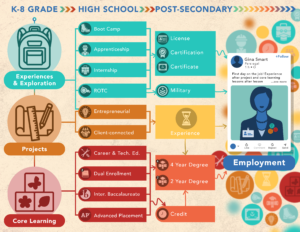
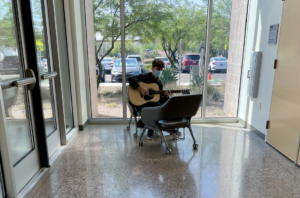
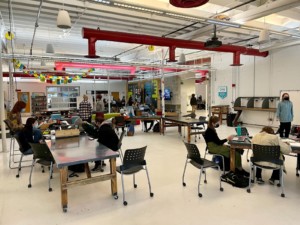
0 Comments
Leave a Comment
Your email address will not be published. All fields are required.